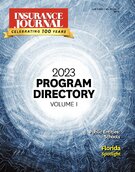I see a lot of turnovers in human resource (HR) departments at insurance agencies. It seems like most internal recruiters don’t last longer than two years, and the majority leave for a job outside the insurance industry.
What pushes people in HR and talent acquisition to early resignations?
Insurance recruiters tell me they are overwhelmed and overworked. Does this happen at your company? To find out, ask yourself, in the past year or two:
- Have we had turnover in our HR/talent acquisition team?
- Did it take longer to fill jobs in 2022?
- Have we seen a decrease in application quality?
- Has HR been slow to generate offer letters, clear background checks, and complete onboarding paperwork?
If you answer “yes” to any of these, then your recruiters may feel unsupported and unrecognized. Immediate steps you can take to make positive changes for them are:
1: Ask HR Employees if They Enjoy Recruiting
Start with your HR leader and go down the ranks. I think you’ll discover that a lot of people in HR dislike recruiting. Work productivity and success suffer when folks don’t enjoy their job. It’s incumbent upon you, as an agency executive, to evaluate and improve the recruiting environment so either HR enjoys recruiting, or you make changes to better suit everyone’s skill sets.
2: Assign a Realistic Number of Job Requisitions
Ninety is the highest number of job requisitions I’ve heard in the past year, yet it was a Top 20 national brokerage that admitted it was ridiculous and there was nothing they could to do change it. Those hiring managers knew their jobs weren’t being worked on, and the recruiting manager confirmed recruiters resigned to join companies that capped their workload at 25 requisitions.
How many jobs should you assign to recruiters? The answer is not universal. It’s specific to your openings, hiring process, and how you define the recruiter role. When I consult with agencies, here are some of my starting points:
- I recommend organizing job openings into types and categories rather than origination date.
- You must automate, improve your workflows, and maximize technology to create capacity.
- Evaluate best practices to ensure HR and hiring managers have a communication plan about the hiring process from the candidate referral to interviews, offers, and onboarding.
3: Give Recruiters Support and Training
“I can’t get hiring managers to respond on referrals,” and “How can I recruit experienced insurance candidates when I know nothing about insurance?” are two very common concerns/complaints I hear. Support comes in many forms, most notably communication, training and resources.
- What insurance specific recruiting training do you provide? Recruiters succeed when they feel like experts, which is hard if your role is their first foray into insurance or you cannot train them because recruiting is your field of expertise. Where can you find insurance recruiting experts to teach, train and mentor your people?
- Can recruiters influence the hiring process or simply manage it? Challenge hiring managers and recruiters to build better relationships. The more those two parties collaborate the more each feels they can get support from one another.
- How efficient is your hiring process? You couldn’t imagine servicing clients with out a great agency management system, correct? Recruiters need access to great technology and other types of resources to maximize their potential. It might be time to evaluate the quality of your recruiting software, sourcing tools, job boards, website/careers page, etc.
Topics Agencies
Was this article valuable?
Here are more articles you may enjoy.



 Florida’s Commercial Clearinghouse Bill Stirring Up Concerns for Brokers, Regulators
Florida’s Commercial Clearinghouse Bill Stirring Up Concerns for Brokers, Regulators  BMW Recalls Hundreds of Thousands of Cars Over Fire Risk
BMW Recalls Hundreds of Thousands of Cars Over Fire Risk  AIG Underwriting Income Up 48% in Q4 on North America Commercial
AIG Underwriting Income Up 48% in Q4 on North America Commercial  Uber Jury Awards $8.5 Million Damages in Sexual Assault Case
Uber Jury Awards $8.5 Million Damages in Sexual Assault Case 



